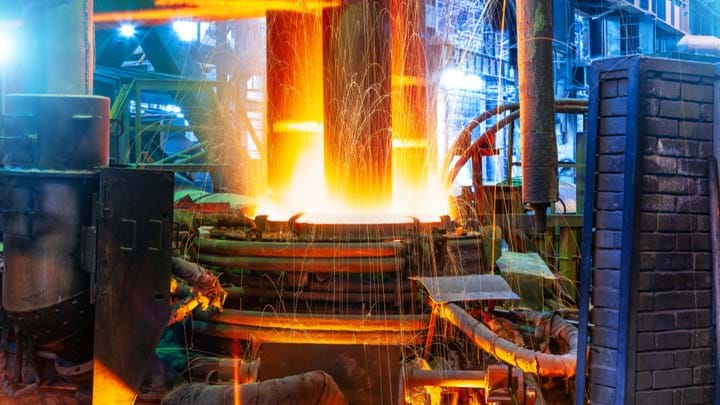Steelmaker successfully trials e-coke that could reduce emissions by up to 30%

LIBERTY Steel UK, the nation’s third largest steel manufacturer, has successfully completed trials of e-coke, a new raw material that can replace anthracite in electrical steelmaking, reducing emissions by as much as 30%.
High-rank coal anthracite is used as the main source of charge carbon in electrical steel production, says Liberty Steel. As part of a process review, its team at the Aldewarke Cast Products (ACP) site in Rotherham, UK suggested replacing anthracite, which accounts for 86–97% of its CO2 emissions.
The company chose to replace anthracite with the biofuel e-coke, which contains a minimum of 30% secondary biomass, and the company says can reduce emissions by 30%. CPL Industries, which manufactures smokeless solid fuels, supplied e-coke to Liberty’s Rotherham facility, which was charged into the electric arc furnace (EAF) in the same manner as anthracite, via the scrap basket.
CPL announced it had delivered the first 50 t of e-coke for commercial trial to Liberty in early May, and following the success of trials announced in October, the company said it would accelerate it delivery campaign to Liberty’s Rotherham EAF.
Liberty said that the trials open up an “immense” opportunity both within its business, and potentially in other areas of the steel industry. As well as the environmental benefits, the reduction in carbon credits would provide substantial cost savings for the company.
The e-coke initiative is part of Liberty’s drive to lead transformation of steel manufacturing through its Greensteel strategy. The strategy targets an economically and environmentally sustainable future for the global metals industry.
Scott Jackson, Plant Manager at ACP, said: “The success of Liberty’s e-coke trials is a major step forward for our Greensteel strategy. The major reductions in CO2 emissions e-coke enables, without any downside to the production process, can help to further decarbonise our production and the wider steel industry.”
The UK’s Climate Change Committee has said that biomass is a flexible resource with the potential to decarbonise activities in multiple sectors across the economy. However, how sustainable the practice is depends on the source of the biomass and the embedded emissions related to the likes of land use change and transportation.
Recent Editions
Catch up on the latest news, views and jobs from The Chemical Engineer. Below are the four latest issues. View a wider selection of the archive from within the Magazine section of this site.




